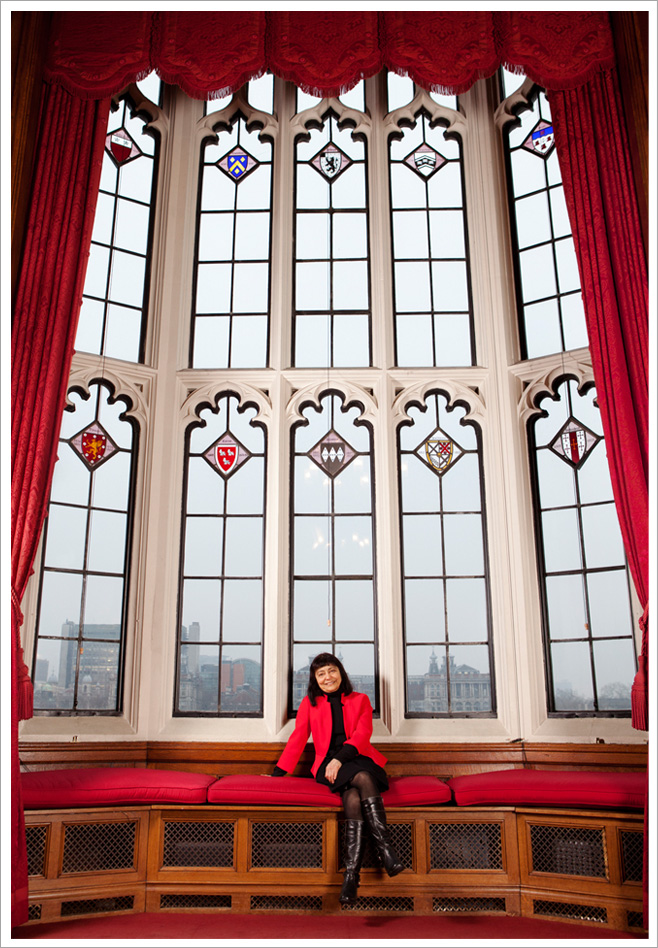BARONESS HALEH AFSHAR
PROFESSOR, LIFE PEER AND PROMINENT MUSLIM FEMINIST

I'm a Muslim feminist. Islam gave rights and entitlements to women fourteen centuries ago that I'm still fighting for in Britain today. So I'm a serious Muslim feminist.
Muslim women have always been economically independent. When I married my husband he had to convert. I explained to him that the reason was that according to Islam, 'what's mine is mine and what's yours is mine too.' Motherhood and domesticity are paid – if you suckle your baby you can charge for it; housework is paid, wages for housework are recognised; and marriage is a binding contract between two consenting partners. Women are actually entitled to payment for agreeing to sign the contract.
I myself had a very privileged life; at the age of fourteen I had never brushed my own hair. My mother brushed it and plaited it. I had never given myself a bath, I had never dressed myself. Then I read Jane Eyre and I thought, Well if you left me on the side of a road I wouldn't know which way to turn. I'd better go to this England where they make these tough women. So I convinced my parents to send me to England. I didn't speak a word of English when I arrived for school here, but I soon learned the language.
As a young married woman, I didn't think motherhood would be for me. I still think, in the West, motherhood is the most deskilling thing that can happen to you. The moment you become a mother you have an unpaid, full-time job. It's seen as a duty that is exclusive to women. And it's very, very difficult to do two full-time jobs.
Today, I can't go back to Iran... I've written extensively on the Iranian government not delivering on its Islamic duty to women… My argument is that the Iranian government is barring the way to education for women because they're scared of educated women. Because educated women can actually read classical Arabic, access the Koranic teachings, and demand their rights, contextualised in the Koranic teachings. They would then be taking on the Iranian government in its own terms… Having said that publically, it wouldn't be safe, now, for me to go back. I wouldn't like to put it to the test.